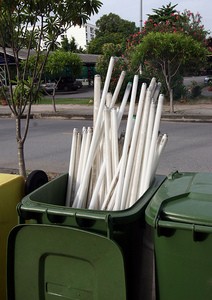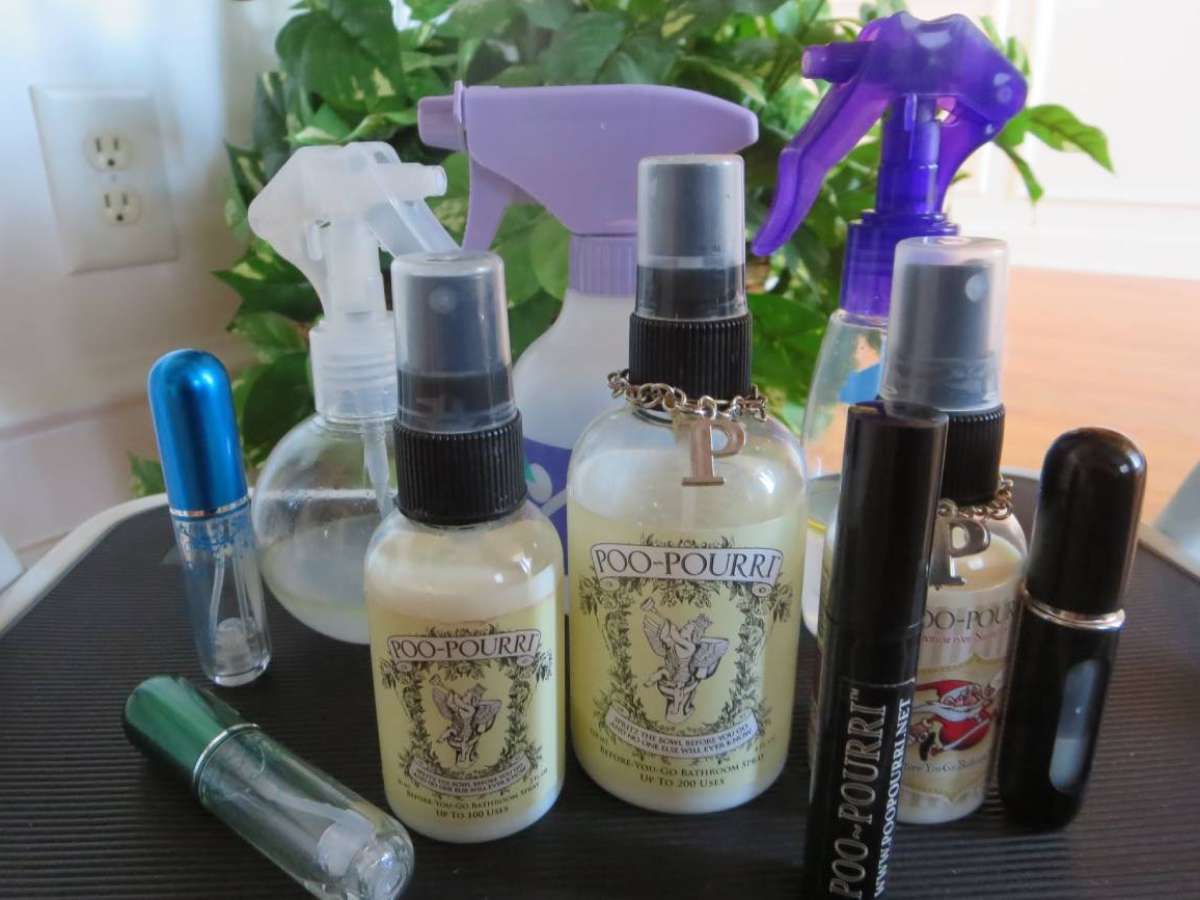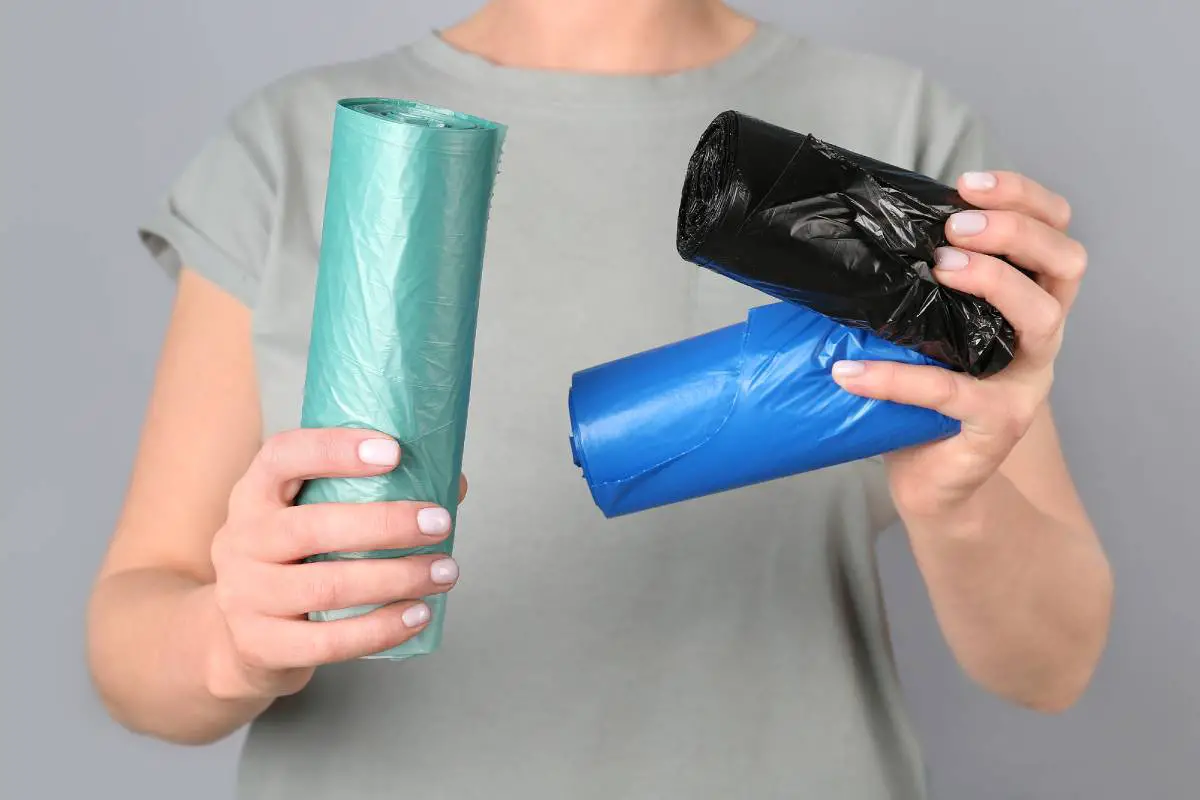 Before you go to throw something away at home, you need to know that there are lots of household items that cannot (or should not) be disposed of in your regular trash.
Before you go to throw something away at home, you need to know that there are lots of household items that cannot (or should not) be disposed of in your regular trash.
Many things cannot even be recycled via your regular curbside recycling or in your county’s recycling dumpsters.
The following items pose a hazard to the environment and human well-being and, therefore, must be recycled in other ways. Usually, this means taking the item to a Household Hazardous Waste collection center in your community. In addition, communities typically schedule HHW collection events a couple times each year.
For example, did you know?…
Who among us hasn’t put a drinking glass or flower vase out with the recycling? Alas, those too must be weeded out. That kind of glass is intended to withstand reuse, and so it has a much higher melting temperature than a single-use glass. The sturdy glass stays solid as the other types melt, contaminating the product. Source
Extra precautions should be taken when disposing of these items…
How To Dispose Of Everyday Things
PAINTS & STAINS
Leftover paint, paint thinners, stains, and paint strippers have hazardous ingredients and should be taken to a local household hazardous waste collection center.
- Water-based: latex – least harmful, pre-1992 paint may contain mercury
- Oil-based: enamel, lacquer, shellac and varnish – contains solvents
- Hobby or artist: coloring paints – may contain solvents or heavy metals
- Aerosols: spray paints – contain solvents and propellants
Source
Here’s what to do with old paint, and tips regarding how long paint lasts.
How To Dispose Of Paint: First, use up all of the paint if possible — so there is no more than 1/4-inch of paint left in the bottom of the can. Let the paint can dry out by leaving the lid off before recycling it. When the can is empty (and completely dry), it is accepted as a scrap metal item. It should be put in a scrap metal bin at a drop-off facility. It should not be put in the curbside recycling bin — because it’s not a food grade material.
ADHESIVES & GLUES
Products like adhesives and glues contain solvents and other toxic chemicals. When disposed of in their original form, their ingredients can contaminate your garbage and possibly seep into the environment.
How To Dispose Of Adhesives & Glues: If you have a small amount of adhesive, open the container and let it dry. For larger amounts, spread the adhesive in thin layers on cardboard or newspapers. If the adhesive is in a tube, slit the tube for drying. For two-part adhesives, mix them together before letting them dry. When the adhesive has hardened, you can safely place it in the trash.
AEROSOL CANS
Since spray cans also contain propellants and chemicals, most municipal systems treat them as hazardous material.
How To Dispose Of Aerosol Cans: Empty aerosol cans are safe to throw in the trash. However, full or partially filled cans are potentially dangerous and may explode if exposed to heat or punctured (by compacting in a garbage truck, for example). Take aerosol cans that still have something in them to a Household Hazardous Waste collection center in your area.
MOTOR OIL
Motor oil is considered a hazardous waste because it can seep into landfills, sewers, backyards, and storm drains. This gets into our groundwater and can damage water treatment systems as well as contaminate drinking water. Used motor oil should be taken to an automotive facility. Most service stations, repair facilities, and quick lubes will accept used motor oil without charge.
Used motor oil can be reprocessed into fuel that can be used in furnaces for heat, or in power plants to generate electricity for homes, schools and businesses. It can also be used in industrial and utility boilers, blended for marine fuels, and other uses. Used motor oil can also be re-refined into lubricating oils that meet the same API specifications as virgin motor oil. Source
How To Dispose Of Motor Oil: Simply drain your oil into a clean container (like a gallon milk jug or water container) with a tight-fitting cap. Don’t mix the oil with any other liquids, and make sure the oil is free from dirt, leaves, and other debris. Then take it to an oil collection location.
FERTILIZERS
Fertilizers introduce several dozen toxic metals (including lead and mercury) and chemicals into the nation’s farm, lawn, and garden soils. Many crops and plants extract these toxic metals from the soil, increasing the chance of impacting human health as those crops and plants enter the food supply chain. Aside from the fact that the use of pesticides on edible plants can endanger our health, by excessively disposing of fertilizers improperly we are increasing those odds.
TIP: Household fertilizers that contain pesticides are the most hazardous ones. (For example, “weed and feed” fertilizers contain weed or bug killers.) If a fertilizer contains a pesticide, you should dispose of it the same way you would a pesticide.
How To Dispose Of Fertilizers: Do not put leftover fertilizer in the garbage or pour it down the drain. The best thing you can do with leftover fertilizer is to use it up or giv
e it to someone else who can use it. Otherwise, take it to the nearest Household Hazardous Waste facility.
PESTICIDES
The same chemicals that kill unwanted bugs can also make pets and people sick too. When disposed of in your regular trash (which makes its way to landfills), the chemicals can seep into the ground and drinking water. If pesticides reach waterways, they can harm fish, plants, and other living things.
How To Dispose Of Pesticides: Do not pour leftover pesticides down the sink, into the toilet, or down a sewer or street drain! Pesticides can interfere with the operation of wastewater treatment systems and pollute waterways. Unfortunately, many municipal systems are not equipped to remove all pesticide residues. Do this instead:
- If the pesticide container is empty, do not reuse it for some other purpose. Follow the instructions on the label, which may include placing the empty container in the trash.
- If the container is partly filled, contact your local solid waste agency. Most likely, they will inform you of a household hazardous waste collection event in the near future.
TIRES
Tires are bad for landfills because they are large and bulky and the steel-belt can puncture the liners of landfills, leading to ground contamination.
How To Dispose Of Tires: Tires can be recycled at almost any car dealer or tire service center. Some places charge a small fee to drop off tires. Many states collect a separate disposal fee at the point of sale for this purpose.
MERCURY THERMOMETERS
Mercury, which is found in thermometers, can affect: the brain, the spinal cord, the kidneys, and liver. When mercury leaks into the environment (even in small amounts), it can contaminate our lakes and destroy entire species of fish and other wildlife.
Today, mercury-free thermometers for everyday use are readily available… and preferred. If you still have a mercury thermometer, you should replace it.
How To Dispose Of Mercury Thermometers: Take your old mercury thermometers to a hazardous waste facility in your area. Or, watch for a household hazardous waste collection day in your neighborhood.
APPLIANCES
Besides taking up space, old appliances (like refrigerators, air conditioners, and freezers) release refrigerants, insulating foams & other harmful agents into the atmosphere — like CFCs, HCFCs, HFCs, and mercury. When they’re past their prime, these old appliances end up in our landfills. In fact, nearly 10 million refrigerators are disposed of each year. (Approximately 40% end up being salvaged and resold, while 60% end up in landfills.)
HCFCs in old refrigerated appliances (air conditioners, refrigerators, freezers, etc.) must be recovered according to federal law. The EPA can impose fines up to $25,000 for failure to comply with this regulation. Source
How To Dispose Of Old Appliances: To avoid fines up to $25,000 by the EPA, you must properly dispose of your old appliances. That means donating them to charity or having them hauled away by a donation center.
Find an appliance recycling center near you or check out the Steel Recycling Institute.
FLUORESCENT LIGHTBULBS & CFLS
Fluorescent bulbs contain mercury that poses numerous hazards to people and to the environment. This also includes CFLs or compact fluorescent lightbulbs. According to the Environmental Protection Agency, it is up to local and state regulatory agencies to determine how to properly dispose of fluorescent light bulbs.
How To Dispose Of Fluorescent Bulbs & CFLs: If your state or local environmental regulatory agency offers no other disposal options except your household garbage, place the fluorescent light bulb in two plastic bags and seal it before putting it into the outside trash, or other protected outside location, for the next normal trash collection.
BATTERIES
Batteries of all types (alkaline, rechargeable batteries, automotive batteries, button cell batteries like those used in hearing aids, watches, and garage door openers) pose many dangers to the environment and to people. They pollute lakes and streams, contribute to heavy metals that leach from landfills, add lead and acid to the water, and can cause serious burns to the eyes and skin due to the corrosive acids.
TIP: Newer alkaline batteries have 97% less mercury than they used to, so many landfills have lifted bans on alkaline batteries. In some communities you can dispose of them in your regular trash, while in others you cannot.
How To Dispose Of Batteries: To dispose of batteries, you take them to the next hazardous household waste pickup in your area. The same goes for disposing of old smoke alarms.
COMPUTERS & ELECTRONICS
Digital cameras, computers, TVs, printers, iPods, MP3 players, cell phones & chargers, DVDs, CDs, video & audio tapes, pagers, ink cartridges, and other electronics that you don’t use anymore and want to get rid of are known as “e-waste” or “technotrash”. Some of these items contain harmful components like mercury, lead, cadmium, beryllium, and brominated flame retardants.
How To Dispose Of Computers & Electronics: Project KOPEG and GreenDisk are 2 ways that you can recycle your old electronics. You can also find the most responsible recyclers of electronics near you at e-Stewards.
PLASTIC BAGS
According to recycling facilities, plastic bags are the top nuisance. Not only do plastic bags waste time when they get stuck in the machines, but they can also break or damage the equipment.
You can be sure that plastic bags coming through a facility like that are heading for the landfill — they’re not being recycled … Bagging recyclables before you toss them in the bin causes even bigger problems, since workers have to tear open the bag and risk being exposed to potentially dangerous substances. Some facilities won’t allow employees to open bags, meaning all your precious recyclables end up in the garbage. Source
How To Dispose Of Plastic Bags: The best thing to do is find uses for plastic bags around the house (like these 61 uses for plastic Walmart bags), or take them to a grocery store to be properly recycled.
POOL & SPA CHEMICALS
There are tips for handling pool chemicals safely, which indicates just how dangerous pool & spa chemicals can be.
How To Dispose Of Pool Chemicals: Some pool stores will take excess chemicals back for disposal. Or, check with neighbors and local pools to see if they can use your remaining pool chemicals. Sometimes pool chemicals are accepted at hazardous household waste collection centers. As a very last resort, they can be disposed of in the trash — just make sure that all tablets and granular products are dry, in their original containers, and double bagged to reduce the likelihood of contamination, corrosion and explosion.
COOKING OIL & GREASE
Don’t place large amounts of cooking oil and grease in the trash can. It can leak and cause problems with garbage trucks and at solid waste facilities.
How To Dispose Of Cooking Oil & Grease: Do not pour it down the drain! Not only will it clog your pipes, but the oil and grease will build up in sewer pipes as well. Small amounts of oil can be placed in tightly sealed, unbreakable containers in your everyday trash. Or take it to a collection center in your area.
MEDICINE/PILLS
While drugs can (surprisingly) be disposed of in the regular trash, you need to take extra precautions to ensure that the medicine is completely unusable first. Truth be told, you shouldn’t keep leftover or expired medicine on hand anyway — because it loses its potency and could be harmful.
How To Dispose Of Unused Medicines: Don’t flush them down the toilet. They could end up in the drinking water that way. Instead, take them to a hazardous household waste collection event in your area. Or, mix them with ashes, sawdust, dirt, or another undesirable thing (to help them break up and disintegrate faster and to prevent them from being ingested by someone else), then seal them in a plastic container or bag and throw them into the trash.
When a drug contains instructions to flush it down the toilet, he says, it’s because FDA, working with the manufacturer, has determined this method to be the most appropriate route of disposal that presents the least risk to safety … About a dozen drugs, such as powerful narcotic pain relievers and other controlled substances, carry instructions for flushing to reduce the danger of unintentional use or overdose and illegal abuse. Source
FIREWORKS
It’s probably no surprise that fireworks cannot be recycled. However, there are some thing you should do to dispose of fireworks in the safest way possible.
How To Dispose Of Fireworks: Some police and fire departments accept fireworks in order to ensure that they are properly disposed. At home, the best way to dispose of fireworks is to remove the fuse and soak the fireworks in water, then double-bag and place in the trash.
You May Want To Recycle These, But You Can’t
FOOD-CONTAMINATED CONTAINERS
Pizza boxes, take-out containers, donut boxes, and other containers that prepared foods come in — cannot be recycled. During the recycling process, it’s impossible to separate the paper fibers of these containers from the oils and other food particles that soil the containers.
The same is true for paper plates, cups, and napkins, soy milk & broth cartons, waxed milk or juice cartons, and some frozen food boxes. The coatings that add strength to these products also contain contaminants. Basically, any foiled, glossy, glazed, waxed, glassine, and lacquer coated packages like those used for chip bags, candy wrappers, juice boxes, and frozen food boxes are not recyclable.
Therefore, you have no choice. The household trash can is the only option for these items.
IMPORTANT: Most food containers that packaged foods are sold in at stores — such as cereal boxes, paper egg cartons, and cake mix boxes — can be recycled, as long as they are not soiled and don’t have the plastic coating or a layer of foil inside.
PLASTIC BOTTLE LIDS & CAPS
Because the plastic bottle caps have a different melting point than plastic bottles, they can’t be recycled together. So, remember to always remove the caps before recycling the bottles!
Be sure to remove the caps [from plastic bottles], even if dropping them in the bin is a hard habit to break. Sealed containers are one of the top hazards at recycling facilities. They’re more likely to have liquids inside, but even if a container is empty, the lid locks in air, which could spell trouble in the compressor. (Even metal lids, which are recyclable, must be removed from their containers before going in the bin.) Source
Not sure what to do with the caps left behind? Most people just toss the cap in the trash and let the bottle go on to its new life. But you can actually reuse plastic bottle caps around the house or take them to places that recycle them for you — like Whole Foods or Aveda.
Psst… don’t worry about the plastic ring that’s left behind on the bottle when you remove the cap. It’s small enough not to cause problems!
COSMETICS/MAKEUP CONTAINERS
Lipstick, blush, mascara, and other cosmetic containers can’t be recycled due to the blend of materials that they’re made of.
Fortunately, there are cosmetic recycling programs that accept used makeup containers. For example, you can take containers from used cosmetics — regardless of brand — to any Origins store (or Origins counter in a department store) and they will recycle them for you. The same is true for Aveda, M.A.C, and Kiehl’s, among others.
MIRRORS
Mirrors are made of heat-strengthened material. As a result, they melt at a higher temperature than regular glass items. During the standard recycling process, mirrors will not melt properly, thus contaminating the finished product.
You can donate mirrors to your local thrift shop, or try these other fun ways to reuse old mirrors & broken pieces.
SHOWER CURTAINS & LINERS
Many shower curtains and shower curtain liners contain a harmful material called PVC — which can emit toxic compounds into the air. PVC is not accepted by recycling facilities because when melted down, it can contaminate the chemical makeup of the finished product.
Manufacturers are not required to label shower curtains, but some do list “PVC” or “vinyl” on the packaging. The recycling code “3” or sometimes “V” also indicates the presence of polyvinyl chloride. Source
Your best option is to find creative ways to reuse your shower curtain or liner around the house. For some ideas, here are 12 ways to recycle your shower curtain and liners, plus lots of other fun uses for a shower curtain outside of the bathroom.
COLORED PAPER
Colored papers such as wrapping paper, brightly colored office & craft papers, and construction paper cannot be recycled. The dyes used to create these colors are intense, concentrated, and harsh and cannot be processed with a regular paper recycling machine.
Your only option is to toss it in with regular trash or find ways to reuse it around the house or use it in kids crafts.
Still Have Questions?
Check out Earth 911’s Recyclopedia for details about all of the items that can be recycled, which ones can’t, and how to properly dispose of everything.
Here’s how to find recycling centers across the USA — so you can properly recycle just about any item under the sun!
Tips For Disposing Of Things That Can’t Be Recycled
- 7 Things You Thought You Could Recycle But You Can’t
- Check Here: Can It Be Recycled?
- Aluminum, Paper, Glass & Plastic Recycling Facts
- 21 Things You Didn’t Know You Can Recycle
- Hazardous Waste Recycling Tips
- Recycling 101: Things That May Actually Be Trash
- Plastic Identification Codes: What The Numbers 1-7 Really Mean
- 25 Things You Didn’t Know You Can Recycle
- Wait, Does This Go In The Recycling Bin Or Not?
- Things You Thought You Could Recycle, But You Really Can’t
I like to help people find unique ways to do things that will save time & money — so I write about “outside the box” Household Tips and Life Hacks that most wouldn’t think of. I’m super-organized. And I LOVE to clean! I even enjoy doing laundry (but not ironing). I’m also a lifelong dog owner — so I often share my favorite tips for living with dogs inside your home (like smart home design choices and dog-friendly cleaning & decorating ideas). Career-wise, I’ve been sharing my best ideas with others by blogging full-time since 1998 (the same year that Google started… and before the days of Facebook and YouTube). Prior to that, I worked in Higher Ed over 10 years before switching gears to pursue activities that I’m truly passionate about instead. For example, I’ve worked at a vet, in a photo lab, and at a zoo — to name a few. I enjoy the outdoors via bicycle, motorcycle, Jeep, or RV. When I’m not cleaning, organizing, decorating, or fixing something… you’ll find me at the corner of Good News & Fun Times as publisher of The Fun Times Guide (32 fun & helpful websites). To date, I’ve personally written over 200 articles about cleaning, organization, DIY repairs, and household hacks on this site! A few have over 2M shares; many others have over 100K shares.





